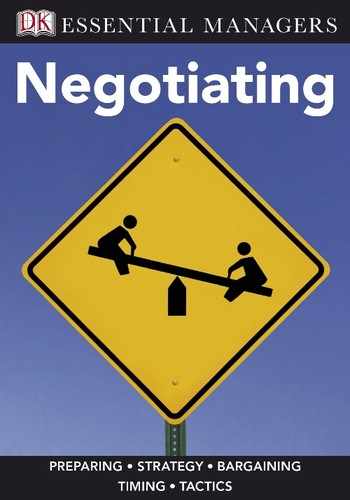Using a Coach
Many negotiators have blind spots, hold false assumptions, and are prone to repeating their mistakes. Some continue to fail to fully understand the other party’s perspective, are unable to convert positions to interests, or are unable to manage their emotions. Working with a coach is an excellent way to gain perspective on your weaknesses and strengths and develop your skills for greater success.
Understanding the benefits
Many negotiators do not realize that they could improve their techniques. They continue to make the same mistakes because they filter information, hearing only what they want to hear, rather than absorbing the complete information that is required to perform well. Another self-serving trap is attribution. Negotiators often attribute problems in negotiations to their counterpart negotiators. An objective coach who is willing to challenge you can help raise your awareness of your limitations and improve your performance.
Developing your skills
| Fast track | Off track |
|---|---|
| Embracing coaching as a way to become more successful | Rejecting an offer of coaching, because you can’t improve |
| Respecting your coach’s assessment of your weaknesses | Believing that your coach doesn’t understand your superior approach |
| Using the feedback your coach gives you to improve your skills | Dismissing your coach’s advice, because you know better |
Working with a coach
When you first work with a coach, they will make an assessment of your performance. This often starts with a 360-degree feedback session, in which your coach collects data from people you negotiate with, in order to identify your strengths and weaknesses. The coach may also “shadow” you in actual negotiations, to take note of your performance. Witnessing you in action allows a coach to provide relevant and insightful suggestions for improvement. The key outcome from the diagnosis is for the coach to identify your patterns in beliefs and behaviors, so that you have a higher level of self-awareness.
Fine-tuning your style
The coach then works with you to identify the skill sets and attitudes you want to focus on throughout the coaching period. Coaches are experienced in diagnosing possible pitfalls in your negotiation styles, and can help you be proactive in preventing them from occurring. They can also help you to uncover issues and resolve them on your own. They can expand your repertoire of behaviors by trying out different approaches and styles with you. Coaches ask a lot of questions. A good coach helps the negotiator to test his or her own assumptions, consider different perspectives, and reach a conclusion about how to proceed. Many will use scenario role play to help you practice new ways of doing things.
Once you have used the new approaches in a real negotiation, a coach can provide a non-threatening evaluation and help you learn from your mistakes, achievements, and missed opportunities. Your learning can then be applied in your next round of negotiations.
Role play
Scenario role play can be an effective method of preparing for negotiations. A coach can help you rehearse your role and make sure there are no gaps or weaknesses in your case and in the negotiation process. For example, the coach can help identify your BATNA or make sure that you are not too enamored with the potential deal to the extent that you are unable to walk away from it. Although it is impossible to perfectly script a negotiation process ahead of time, it is helpful to “know your destination and all the terrain” so that even if the other party takes the process off track, you can still find a way to achieve your goals.
